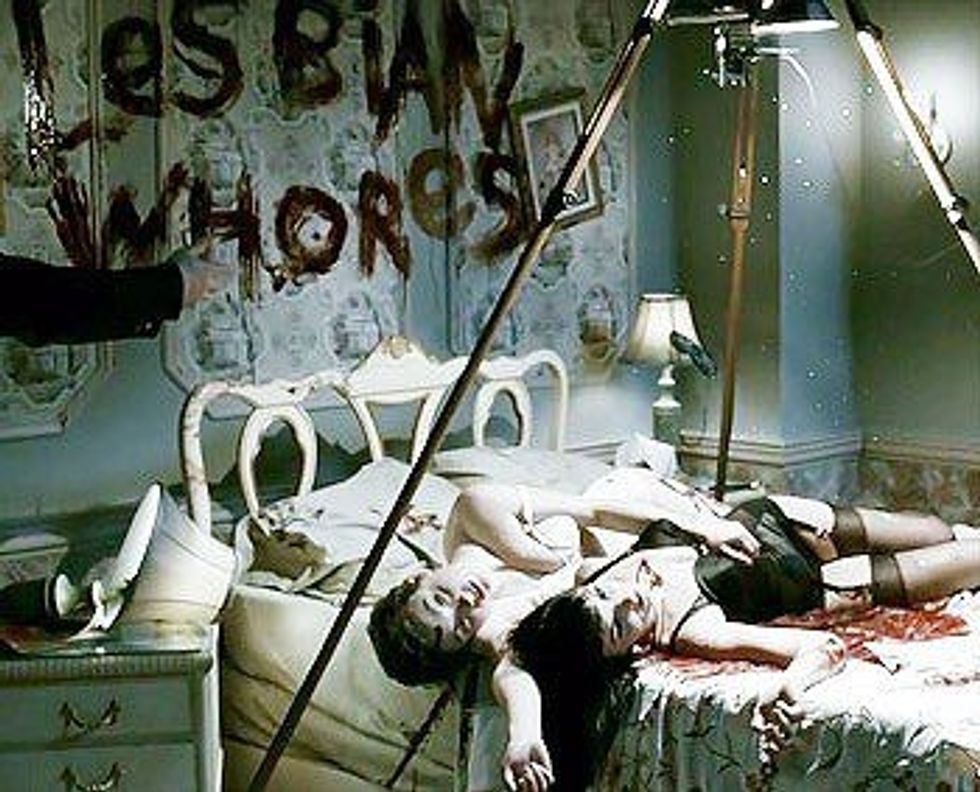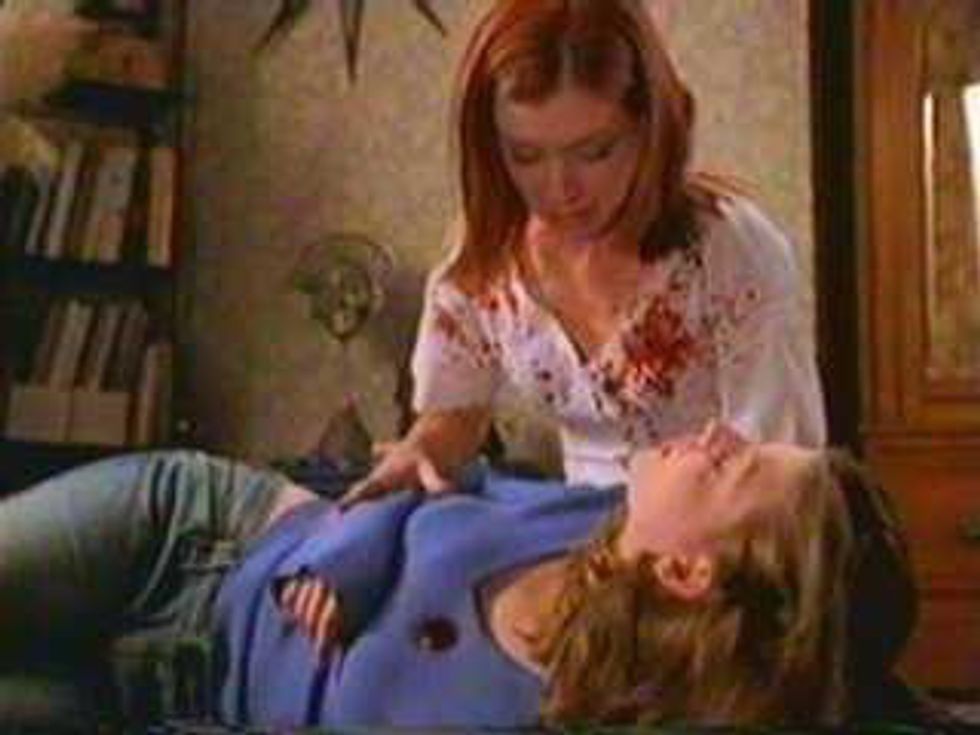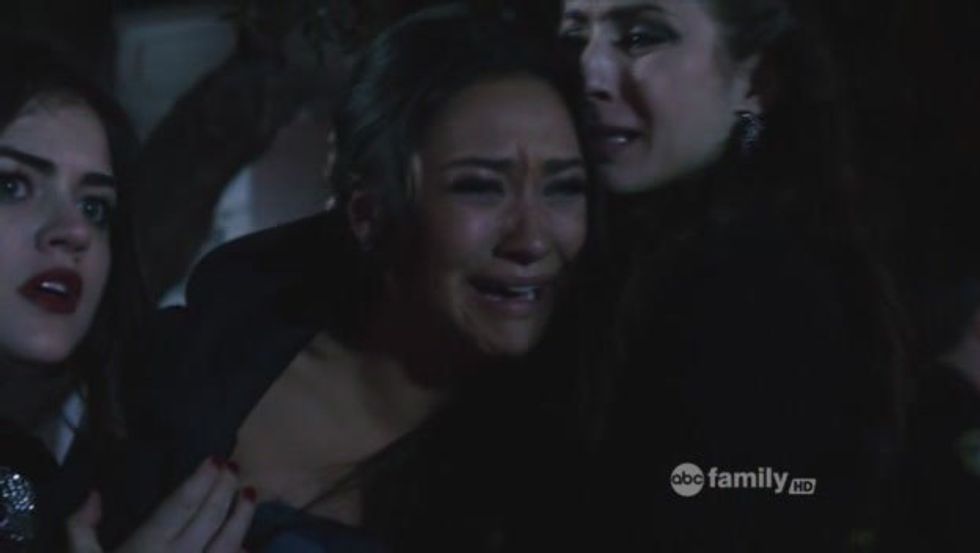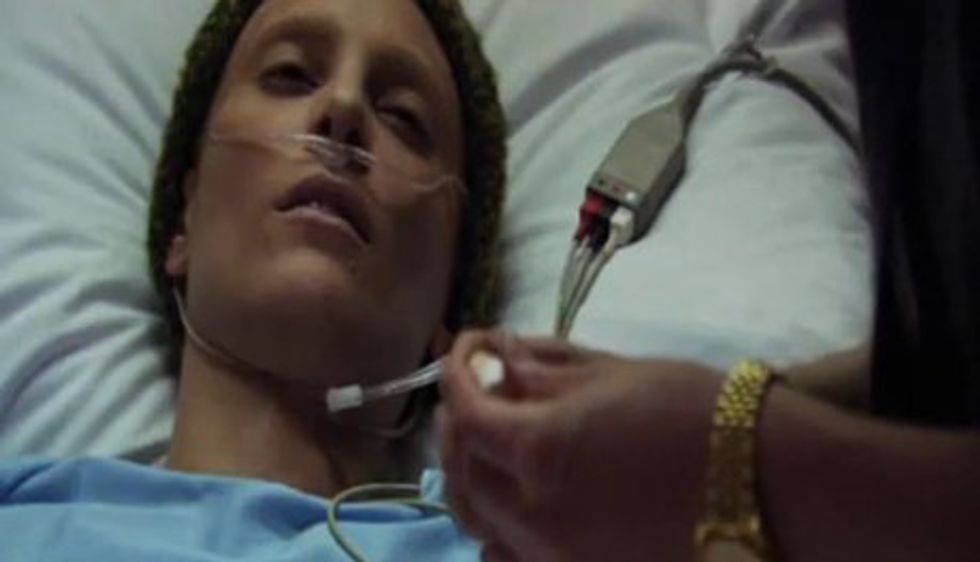Everybody dies. That is the nature of life, and certainly that of television shows looking to pack an emotional punch to their viewers. But with the recent deaths of lesbian and bisexual women characters on popular TV in a trope referred to as "Bury Your Gays," many viewers are wondering why death is so often the treatment for queer women in particular, especially given the low--but rapidly increasing--percentage of LGBT characters (there were only 23 gay characters of any gender on television in the 2011-2012 season. In 2015, there are 119. The bad news? Around 70 percent of them are white and most are male). Spoilers ahead.
Tara, Willow's love interest on "Buffy the Vampire Slayer", is one of the first well-known victims of the "Bury Your Gays" trope.
So why did fans take it so hard when a prominent gay woman on the CW show "The 100" died? Well, it follows a trend of over 148 queer women's deaths over a considerably short span. What's significant about this trend is that these women are often killed after a moment of emotional and/or romantic fulfillment, whether it's getting married, falling in love, or giving birth to name a few examples. Many LGBT+ viewers see this treatment as punishment for attaining happiness outside of the scope of men, and they have had enough.
Lexa was thought to be part of The 100's most compelling dynamic relationships before she was killed shortly after having sex with Clarke, the main protagonist.
It makes sense, too. It seems every talked-about show gives in to this trend at one point or another, including "Jessica Jones", "Orange is the New Black","Buffy the Vampire Slayer" , "The Walking Dead" , and "Pretty Little Liars" .
Shay Mitchell as Emily Fields, shown mourning the death of her girlfriend, Maya, on Pretty Little Liars.
Now, there is a distinction to be made for shows specifically about LGBT characters like "The L Word" , where death is simply more likely to strike a gay woman character due to probability. Likewise, shows that feature death heavily (a trope called "Anyone Can Die") are bound to kill virtually any kind of character that they display, although being a white, straight man on "The Walking Dead" seems to be your best bet to live.
"The L Word's" Dana.
The reasons for killing off a lesbian or bisexual woman character are what really upsets many TV fans. Often, queer women characters are seen as expendable or other. This is because they are usually not included as part of a central, nuclear family (like Tara in "Buffy the Vampire Slayer"). Therefore, they are often thought of as not serving a function that demands their continued survival, especially in shows driven by heterosexual romantic plots. Under this logic, queer women do not serve as proper objects to be viewed under the male gaze, meaning their utility is limited and they are thought not to capture audience attention effectively.
Delphine, love interest to main character Cosima, whose fate is grim and unknown, thought to be dead, on Orphan Black.
Ultimately, this outcry is warranted and well-directed. By campaigning to make studio executives understand that queer women are worthwhile characters that make television whole and captivating, fans have the opportunity to change the tide and "bury" this archaic trope.

























